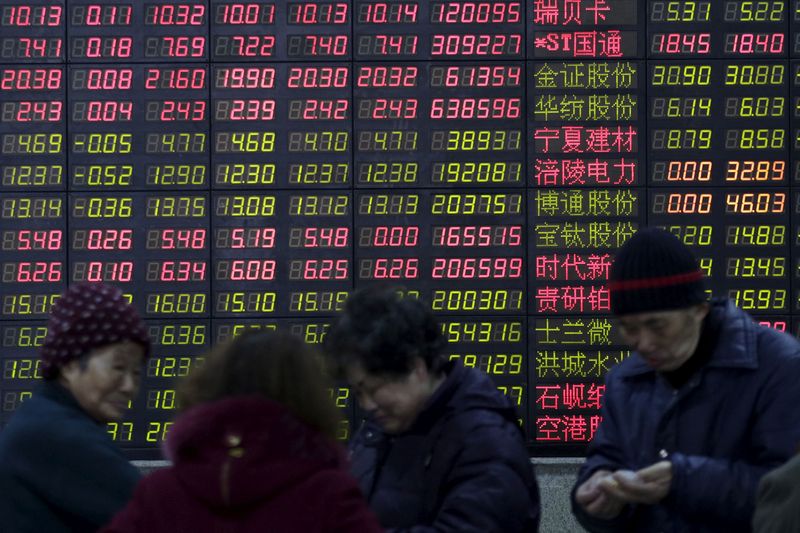SHANGHAI (Reuters) - Chinese investors are shunning equity funds and piling into bonds, deposits and money market products, as stocks tumble and a gloomy economic outlook saps demand for risky assets.
Money is heading so quickly into some deposit-investment vehicles that fund managers have started restricting flows to keep a lid on size.
Risk aversion is also prodding banks themselves to plough money into commercial paper, rather than corporate loans, complicating Beijing's efforts to guide more credit into the pandemic-hit economy.
Fresh fundraising by active equity and balanced mutual funds in China slumped 83% during the Jan-April period from a year earlier, to 154.6 billion yuan ($23 billion), according to fund consultancy Z-Ben Advisors.
The tumbling demand was "caused not only by the A-share market decline, but also the persistent underperformance of Chinese equity funds," said Ivan Shi, Z-Ben's head of research.
An index tracking the performance of Chinese active equity funds has plummeted 25% so far this year, compared with a 17% loss in the benchmark index.
"Unless managers can outperform the broad market, it is hard to expect a resurgence of fund inflows," Shi said.
Zoey Qin, a bank account manager in Shanghai, said many clients have been burnt by equity funds, and are seeking alternatives in low-risk products such as bond funds or deposits.
'DARE NOT BUY'
Risk appetite has evaporated in recent months, following the Ukraine-Russia crisis and Shanghai's COVID-19 lockdown. Z-Ben data shows a jump in bond fundraising over the past two months, totalling 127 billion yuan, or 27% higher than year-earlier levels.
Meanwhile, money is gushing into money market funds and bank deposits.
On April 26, a fund launched by China Merchants Fund Management Co that invests in interbank certificates of deposits (NCDs) hit its fundraising target of 10 billion yuan on its first day of sales.
A number of similar deposit-investment products started restricting money inflows over the past week to prevent their fund size from ballooning.
"The property market is sluggish, and you dare not buy stocks. So it's natural to shift your money into money market funds, bonds, or deposits," said Rocky Fan, economist at Guolian Securities.
Fan also pointed to signs that banks are unwilling, or unable to lend to companies, instead pumping money into the secondary market. Bankers' acceptance bills - collateralised, short-term payment instruments which are deemed low-risk - count as loans, but do not route new cash to the real economy.
Yields of 7-day, and 1-month acceptance bills dropped to 0.0281%, and 0.0466% at the end of April, according to the Shanghai Commercial Paper Exchange.

"When you see ultra-low yields like that, it typically means that this bill market is flush with money, while there's a severe shortage of demand for loans," Fan said.
"It means banks cannot find enough good clients to lend to."